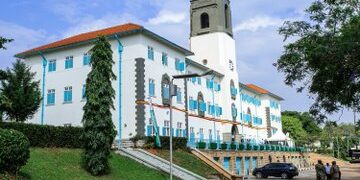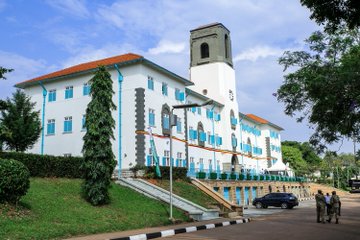Makerere University is taking bold strides towards a fully digital academic environment, unveiling key innovations aimed at enhancing accessibility, transparency, and inclusivity for its students and alumni.
The announcement was made on Thursday by the Acting Vice Chancellor, Professor Buyinza Mukadasi, during a press conference held at the university’s Council Room.
Addressing the media, Prof Mukadasi highlighted three major developments spearheading the university’s transformation in academic registry and ICT advancement.
Digital Certification of Academic Transcripts
Alumni and graduates can now certify their academic transcripts online through the Makerere Academic Records System (Mak-ARS), accessible globally at https://makars.mak.ac.ug/.
This initiative eliminates the cumbersome process of physical visits to the university and offers a user-friendly platform supported by video tutorials and public guidance, ensuring ease of use for all.
Digital Supervision of Graduate Students
The university has piloted the Research Information Management System (Mak-RIMS) at the College of Agriculture and Environmental Sciences to enhance the supervision of Master’s and PhD research projects.
This system promotes accountability and timely feedback between supervisors and students, with plans underway for a university-wide rollout. The goal is to improve graduate completion rates and streamline research oversight.

Inclusive eLearning and Smart Classrooms
With the support of development partners and the Government of Uganda, Makerere is establishing multimedia studios and smart classrooms across its colleges.
These modern facilities are equipped to produce professional educational content, including specialised tools designed to support students with visual and auditory disabilities. This effort aligns with Makerere’s commitment to providing equitable and globally competitive education.
Prof Mukadasi also addressed concerns regarding the transition to digital platforms, noting that some feared the changes might disrupt traditional teaching and learning processes.
“If you have your registration number, you can now sit in the comfort of your home, log in, and access everything you need with your password,” he explained.
He further emphasised the importance of authenticity and verification facilitated by the new system: “If you want to confirm that something is genuine, you can easily do that independently using our Academic Information System. Even if a friend tries to mislead you, you can verify it yourself.”
Looking ahead, Prof Mukadasi outlined plans for a second phase involving digital issuance of academic documents. “In the near future, you won’t need to physically come to the university to be issued your transcripts or certificates. You’ll simply access and download them digitally,” he stated confidently.
He projects that within the next year, the entire academic value chain—from student registration to certification—will be fully digitised.
The university’s digital transformation initiatives mark a significant leap towards modernisation, accessibility, and inclusivity, reinforcing Makerere’s position as a leading academic institution in Africa.









